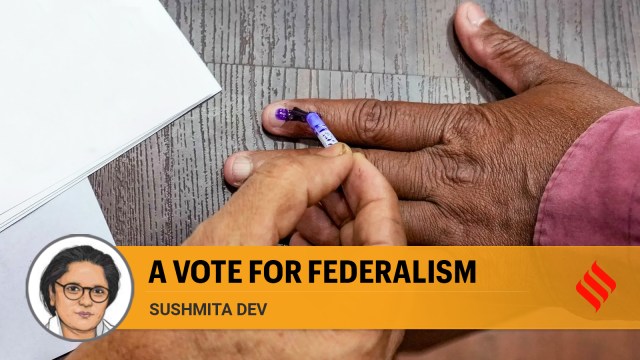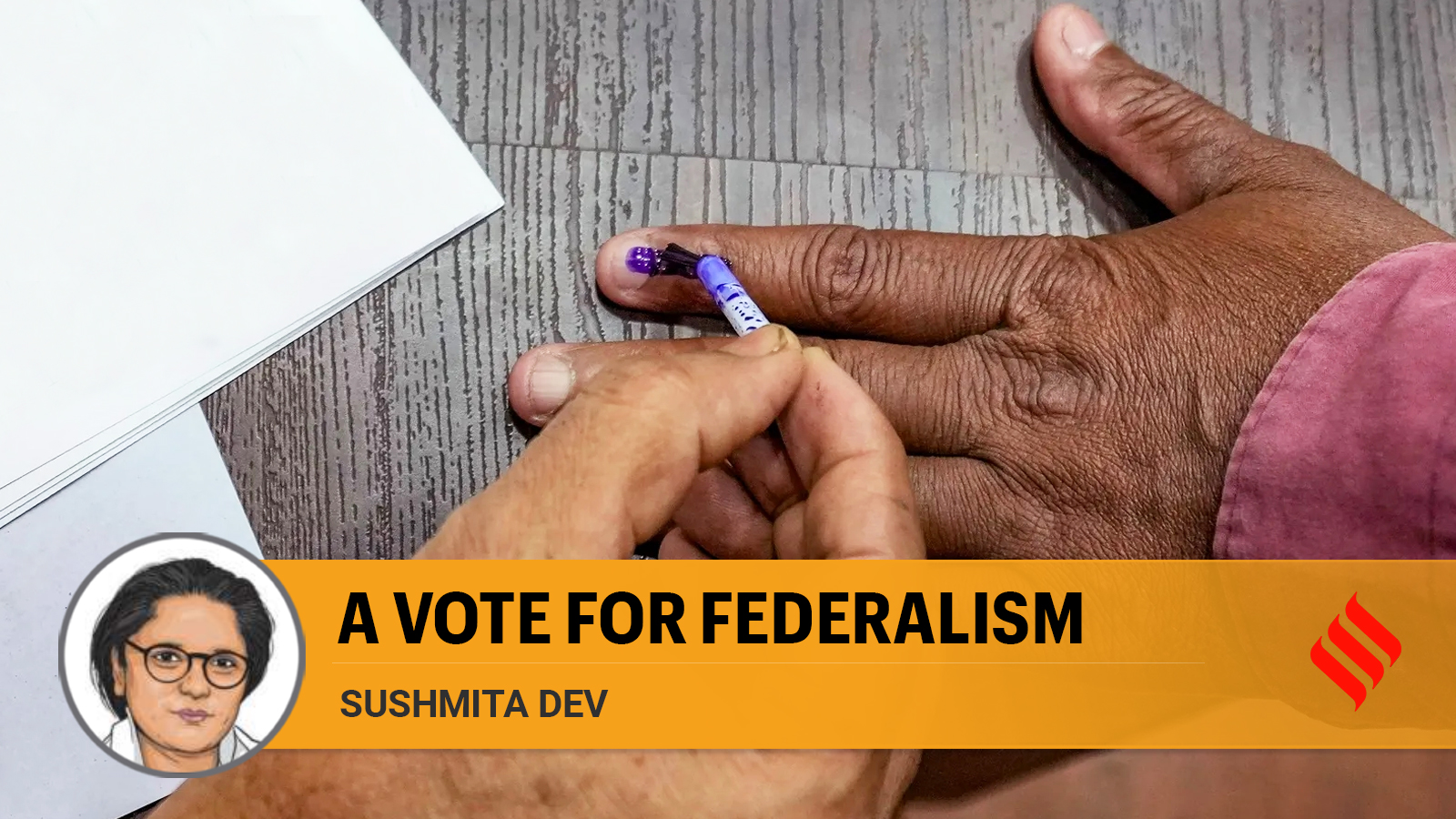
Apart from being a vote on basic daily issues like naukri, mehangai, roti, kapda aur makaan and the rights of the deprived in the Constitution, the 2024 general election results also have an underlying message: India cannot be controlled by a centralised, authoritarian and monolithic regime. Article 1 of the Constitution of India reads, “India, that is Bharat, shall be a Union of States”. Without explicitly mentioning the term “federalism”, the makers of modern India gave prominence to the states through several provisions, particularly the 7th Schedule. June 4 cemented this underlying ideal, and the people told us that the Bharatiya Janata Party’s narrative of “One Nation, One This; One Nation, One That” must be abandoned. It was, therefore, no surprise that the first session after the general elections saw a resurgent Opposition in Parliament and a weakened BJP.
The 2024 general election marked a shift away from PM Modi’s centralised governance approach, with regional parties gaining ground in various states. It is significant that India officially has only six national parties. However, the Opposition’s increased strength comes from the state-level successes of parties like the AITC, DMK and SP. The NDA too secured its numbers to form the government from parties like the JD(U) and TDP — none of these are among the six national parties.
The sum and substance of this is: If the INDIA bloc wants to hold steadfast and keep inching towards forming the central government, it must guard its set of state governments, which account for about 100 seats, including states like Karnataka and Telangana. Similarly, if the NDA bloc wants a stable government, it must serve the interests of its regional state partners in Andhra Pradesh and Bihar.
PM Modi’s Viksit (developed) Bharat agenda must bow to India that is a “Union of States”, and the INDIA bloc must forcefully defend the powers of the states carved out by the Constitution in our quasi-federal structure.
More significantly, a Viksit Bharat is an impossibility without the growth of and contributions from large Opposition-ruled states like West Bengal, Tamil Nadu and Karnataka, to name a few. The contribution of these three states to the national economy is at 5.6 per cent, 8.8 per cent and 8.38 per cent, respectively, while their state GDP is at 16 per cent, 10.5 per cent and 9.4 per cent. The PM may have referred to “competitive cooperative federalism” in his speech on July 2 in Lok Sabha, but his actions have only weakened the welfare and legislative agenda of the states. Centralisation of powers and discriminatory treatment have been at the core of PM Modi’s governance model.
The state of West Bengal and Chief Minister Mamata Banerjee have been a target ever since the defeat of the BJP in the 2021 assembly elections. There are several glaring examples of the extreme corrosion of the state’s powers, finances and image by the BJP. It started with all 77 BJP MLAs being granted security by central forces after the 2021 assembly elections on the pretext of post-poll violence. This flies in the face of the kind of unbridled violence that the BJP government allowed in Tripura. Governors of West Bengal have not only crossed the line of decency in their communication with the CM. They have repeatedly crossed the line of constitutionality by withholding assent to important bills and disregarding the state’s will on important issues; for example, the West Bengal government had to go to court over the issue of CBI investigating cases in the state without taking its consent, as required under Section 6 of the Delhi Special Police Establishment Act. Not only did the NDA government, without proper consultation and debate, bring in three criminal laws that have changed the criminal justice system drastically, in June it also held a conference on the subject in Kolkata without the involvement of the state government. This, even though law and order is a state subject, and its implementation lies with the CM herself, who also holds the Home portfolio.
The Centre has denied West Bengal about Rs 1.16 lakh crore, owed on account of centrally-sponsored schemes. All social schemes like the MGNREGS, National Health Mission, PMSY and PMGSY have huge outstanding amounts, withheld by the government of India. The state has replied to a plethora of enquiries from the Centre but it has been in vain. What is worse, states with BJP governments have been compensated despite irregularities. The West Bengal government not only paid dues owed by the Centre to job card holders, it has also commenced a state scheme — Karmashree Prakalpa — to ensure work, which is a right guaranteed by a central act.
“One nation, one election”, “one nation, one exam”, amendments to the Essential Commodities Act that curtailed states’ powers, and deprivation of compensation to states under the flawed GST regime are all glaring examples of federalism under attack. The modus operandi is clear — to weaken states where the BJP has been repeatedly defeated. The bypoll results of July 13 bear testimony to the threat that the Opposition’s electoral success in states poses to the BJP. In the following five years, the Opposition must focus on aggressively guarding the country’s federal structure and the state parties that are acting as a crutch supporting the current NDA government must also be agile in protecting their rights.
The writer is Rajya Sabha MP, All India Trinamool Congress



